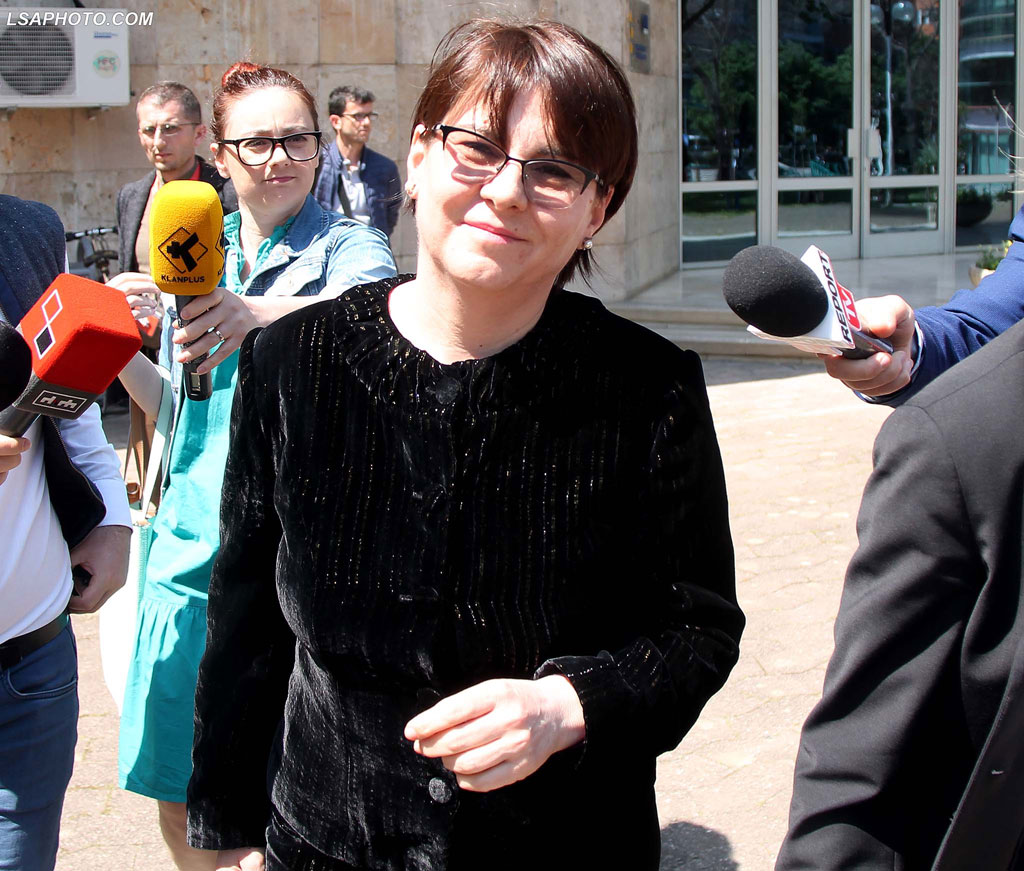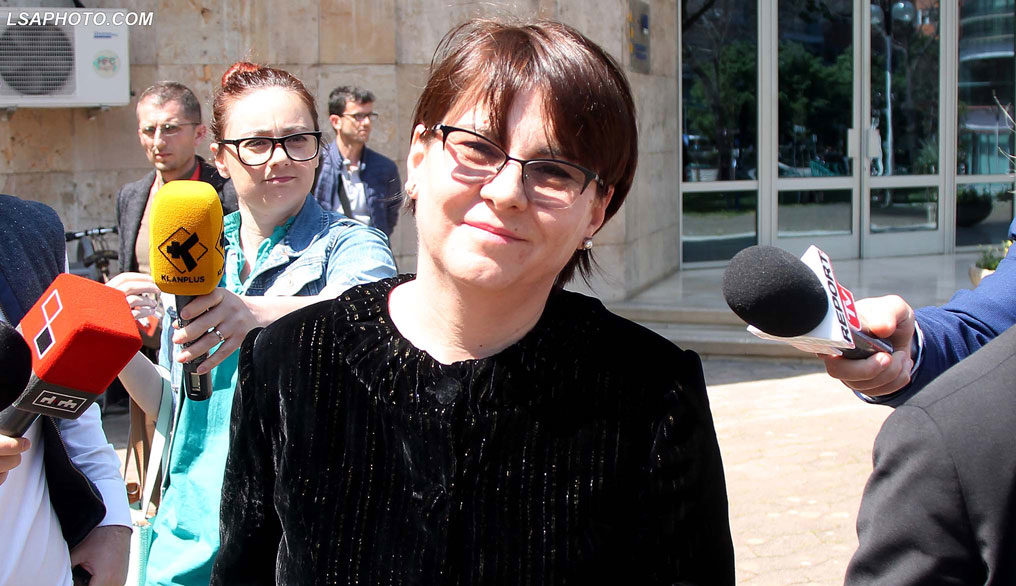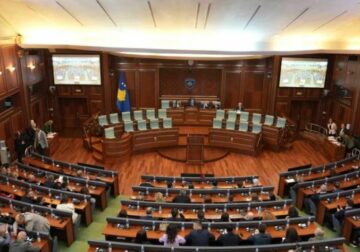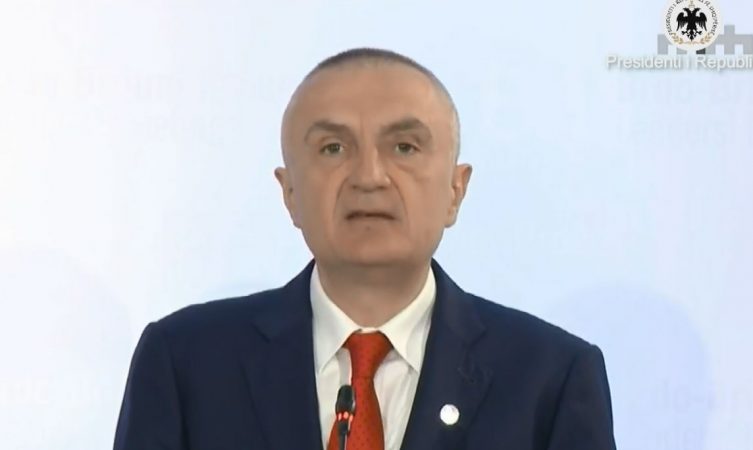
Ish-anëtarja e Gjykatës Kushtetuese, Altina Xhoxhaj, e ka ankimuar në Gjykatën e Strasburgut vendimin e Komsionit të Pavarur të Kualifikmit dhe atë të Kolegjit të Posaçëm të Ankimimit për shkarkimin e saj.
Gjykata e Strasburgut e ka pranuar padinë e Xhoxhajt ndërsa i është drejtuar me 5 pyetje Avokaturës së Shtetit, që përfaqëson Shqipërinë në këtë proces.
‘Aplikanti ishte gjyqtar i Gjykatës Kushtetuese.
Aplikimi ka të bëjë me shkarkimin e saj nga ky pozicion nga Komisioni i Pavarur i Kualifikimeve, i cili është një organ i themeluar me Ligjin për Rivlerësimin e Përkohshëm të Gjyqtarëve dhe Prokurorëve nr. 84/2016 (i njohur si Akti i Verifikimit) në bazë të deklaratës së mangët për qëllime të auditimit të pasurisë në kuadër të procesit të verifikimit.
Përveç kësaj, Komisioni i Pavarur i Kualifikimeve gjeti në një vlerësim të përgjithshëm se kërkuesi kishte minuar besimin e publikut në sistemin e drejtësisë.
Ankuesi e kundërshtoi vendimin për largimin nga puna para Dhomës së Apelit, organi i themeluar sipas Aktit të Verifikimit për të shqyrtuar ankesat. Më 24 tetor 2018, Dhoma e Apelit konfirmoi vendimin e Komisionit të Pavarur të Kualifikimeve për të shkarkuar kërkuesin.
Aplikanti ankohet sipas nenit 6 § 1 të Konventës për padrejtësinë e procedurave para Komisionit të Pavarur të Kualifikimeve dhe Dhomës së Apelit. Përveç kësaj, ankuesi ankohet për shkelje të së drejtës së saj për respektimin e jetës private sipas nenit 8 të Konventës për shkak të largimit të paligjshëm dhe arbitrar të saj nga detyra, si dhe ndalimin e pretenduar të jetës së tij nga ushtrimi i ligjit si avokat pas saj shkarkimi. Së fundi, kërkuesi ankohet për mungesën e mjetit efektiv juridik sipas nenit 13 të Konventës për ankesën e saj në nenin 8’ – thuhet në pjesën hyrëse të çështjes.
5 pyetjet e Gjykatës së Strasburgut ndaj Tiranës
Communicated on 18 June 2019
SECOND SECTION
Application no. 15227/19
Altina XHOXHAJ against Albania lodged on 8 March 2019
SUBJECT MATTER OF THE CASE
The applicant was a judge of the Constitutional Court.
The application concerns her dismissal from this position by the Independent Qualification Commission, which is a body established under the Transitional Reevaluation of Judges and Prosecutors Act no. 84/2016 (known as the Vetting Act) on the basis of deficient declaration for the purpose of the audit of assets in the frameëork of the vetting process.
In addition, the Independent Qualification Commission found in a general assessment that the applicant had undermined the public trust in the justice system.
The applicant challenged the dismissal decision before the Appeal Chamber, the body established under the Vetting Act to review appeals. On 24 October 2018 the Appeal Chamber upheld the Independent Qualification Commission’s decision to dismiss the applicant.
The applicant complains under Article 6 § 1 of the Convention about the unfairness of the proceedings before the Independent Qualification Commission and the Appeal Chamber.
In addition, the applicant complains about a breach of her right to respect for private life under Article 8 of the Convention on account of her alleged unlawful and arbitrary dismissal from office, as well as her alleged lifetime ban from practising law as an advocate following her dismissal. Finally, the applicant complains of a lack of an effective remedy under Article 13 of the Convention for her Article 8 complaints.
QUESTIONS TO THE PARTIES
- Was Article 6 § 1 of the Convention, under its civil head, applicable to the proceedings in the present case? In the affirmative, did the applicant exhaust available domestic remedies in respect of her claims under Article 6 of the Convention?
- Did the applicant have a fair hearing, in accordance ëith the requirements of Article 6 § 1 of the Convention? In particular:
(a) Can the Independent Qualification Commission (IQC) be considered to be a “tribunal established by law”, within the meaning of Article 6 § 1 of the Convention? Did the IQC meet the requirement of impartiality, considering that the same entity carried out the investigation and took the decision to remove the applicant from judicial office (see Kamenos v. Cyprus, no. 147/07, §§ 107-109, 31 October 2017)?
(b) Was the Appeal Chamber that heard the applicant’s appeal in this case “independent and impartial”, within the meaning of Article 6 § 1 of the Convention?
(c) Were the provisions of Laë no. 84/2016 sufficiently clear and accessible, ensuring the applicant’s Convention rights were protected in the proceedings before the transitional re-evaluation bodies? In particular, how have the re-evaluation bodies interpreted and applied the following aspects of the relevant laws:
(i) the concepts of “lawful income” (art. 3(19) of the Laë), including ëith respect to income from foreign sources, and “lawful assets” (art. 61(1) of the Law);
(ii) the conditions for shifting the burden of proof onto the re?evaluation subjects, including the condition that “the evidence has [reached] the level of provability” , as well as with respect to facts and circumstances that occurred many years prior to the current proceedings;
(iii) the standards of “insufficient disclosure of assets” (art. 61(3) of the Law) and “the undermining of public trust in the justice system” (art. 61(5) of the Law) as grounds for removal from judicial office;
(iv) the methodology used for estimating living expenses of the reevaluation subjects and their families?
The Government are invited to provide extracts of decisions of the re?evaluation bodies that might clarify the above matters.
(d) Were the disciplinary or other infractions that provided the basis for the applicant’s removal from office subject to any statutory limitations (see Oleksandr Volkov v. Ukraine, no. 21722/11, §§ 137-140, ECHR 2013)?
(e) Was the denial of the applicant’s request for a public hearing, and for submitting additional evidence, before the Appeal Chamber in breach of her right to a fair hearing within the meaning of Article 6 § 1 of the Convention, viewed in conjunction with the question under paragraph 2 (a) above (see Ramos Nunes de Carvalho e Sá v. Portugal [GC], nos. 55391/13 and 2 others, 6 November 2018)?
3. Did the applicant exhaust available domestic remedies with respect to her Article 8 claims, including regarding her alleged lifetime ban from the private practice of law? In the affirmative, has there been an interference with the applicant’s right to respect for her private life, under Article 8 of the Convention, on account of her removal from office as a Constitutional Court judge (see Oleksandr Volkov v. Ukraine, no. 21722/11, §§ 165-167, ECHR 2013 and Denisov v. Ukraine [GC], no. 76639/11, 25 September 2018)?
- In the affirmative, was the interference ëith the applicant’s right to respect for her private life prescribed by law and necessary in a democratic society, within the meaning of Article 8 § 2 (see Oleksandr Volkov v. Ukraine, no. 21722/11, ECHR 2013 and Denisov v. Ukraine [GC], no. 76639/11, 25 September 2018)? In particular:
(a) Was the sanction of removal from office proportionate to the gravity of the disciplinary or other infractions on which it was based?
(b) does Law no. 55/2018 on Advocates bar the applicant, by virtue of her removal from judicial office by the Appeal Chamber, from the private practice of law; and if so, for how long?
- Did the applicant have at her disposal an effective domestic remedy for her Article 8 complaints, as required by Article 13 of the Convention?
https://hudoc.echr.coe.int/eng?i=001-194487&fbclid=IwAR2m-Bmot89NkRSA3t43BShfLJBodbVmIMSgZQrH3mmoG7zzrOHJtjHL6GE#{%22itemid%22:[%22001-194487%22]}



























